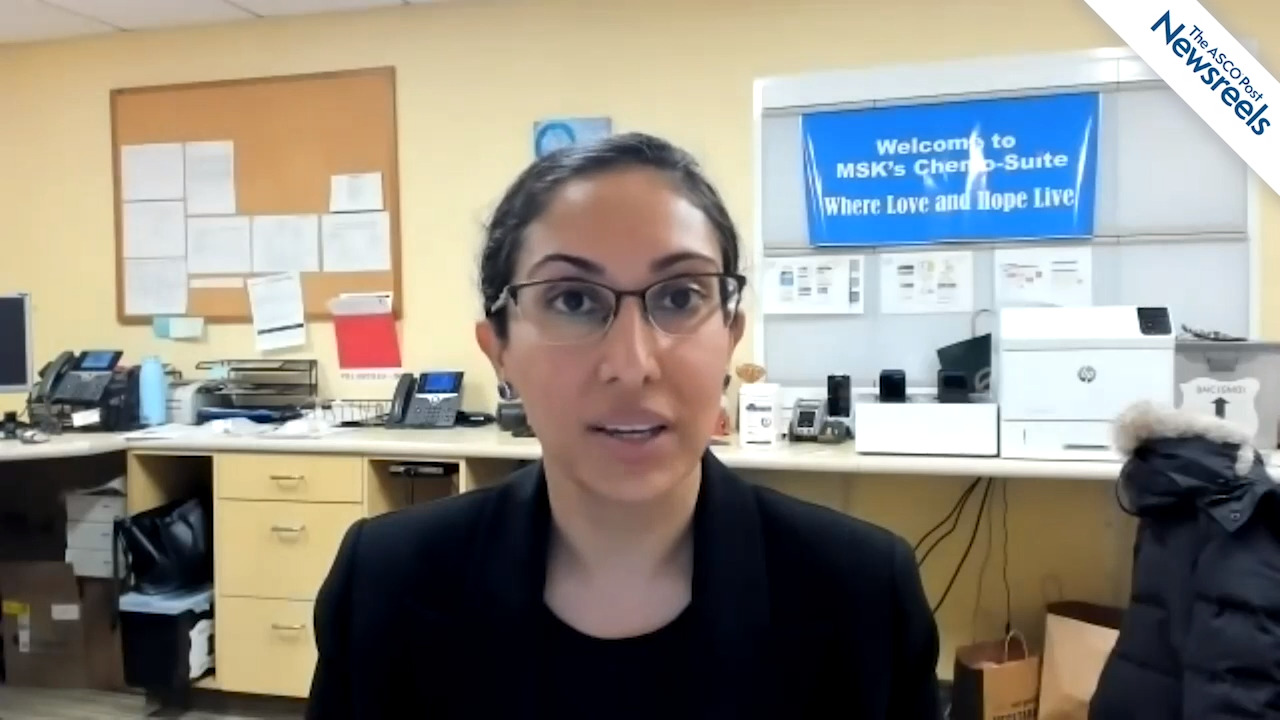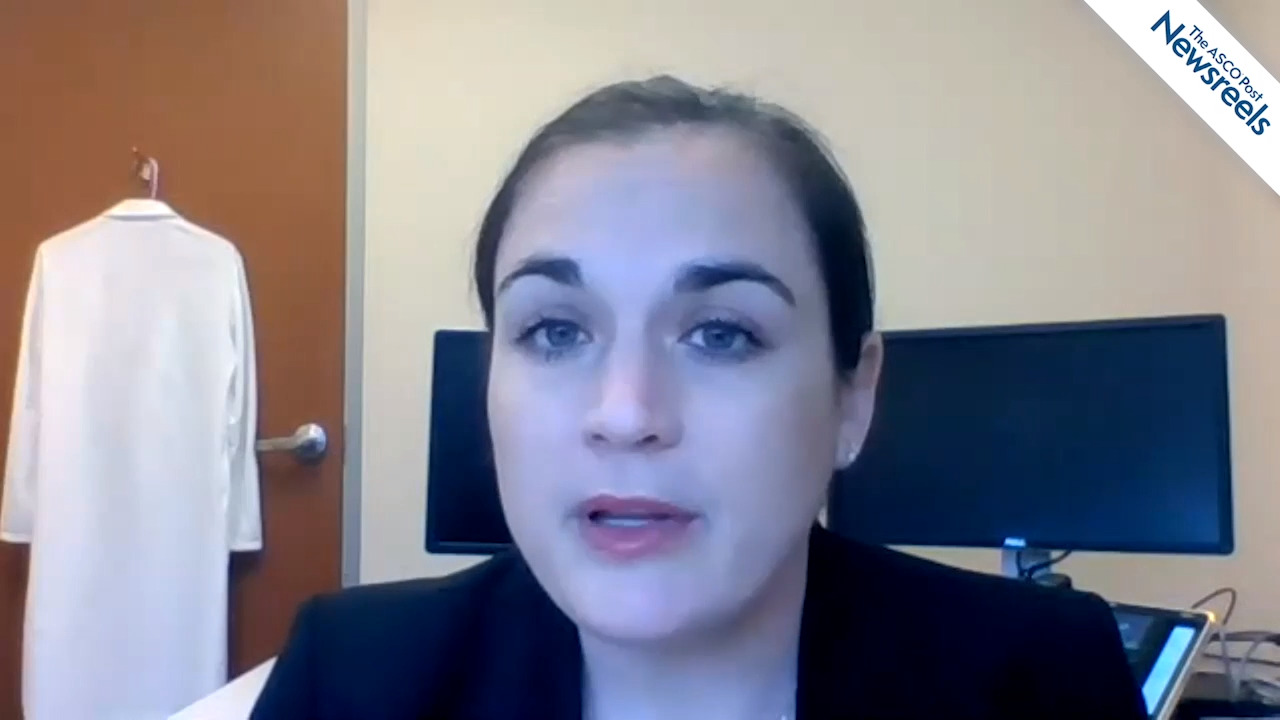Sandro Pignata, MD, PhD, on BRCA-Mutated Ovarian Cancer: Maintenance Olaparib Outcomes
SGO 2021 Virtual Annual Meeting on Womens Cancer
Sandro Pignata, MD, PhD, of the Istituto Nazionale dei Tumori, discusses results from the ORZORA trial, which showed the efficacy of olaparib in patients with platinum-sensitive relapsed ovarian cancer is similar, whether they have a germline or somatic BRCA mutation. This information could prove useful for clinical practice (ID #10226).
The ASCO Post Staff
Alice P. Barr, MD, of the Carolinas Medical Center and Levine Cancer Institute, discusses results from a retrospective study, which showed that progression-free and overall survival appeared to be no different with open surgery and minimally invasive surgery for interval debulking after neoadjuvant chemotherapy in women with advanced epithelial ovarian cancer. Perioperative outcomes also seemed to be superior with minimally invasive surgery (ID #10209).
The ASCO Post Staff
Vicky Makker, MD, of Memorial Sloan Kettering Cancer Center, discusses phase III findings showing that lenvatinib plus pembrolizumab may improve overall and progression-free survival, as well as overall response rate, compared with treatment of physician’s choice for advanced endometrial cancer. These results were achieved regardless of mismatch repair status following platinum-based chemotherapy (ID #10191).
The ASCO Post Staff
Emily Hinchcliff, MD, MPH, of The University of Texas MD Anderson Cancer Center, discusses phase II results of durvalumab (anti–PD-L1) and tremelimumab (anti–CTLA-4) administered in combination vs sequentially for the treatment of recurrent platinum-resistant non–clear cell ovarian cancer (ID #10240).
The ASCO Post Staff
Morcos N. Nakhla, MS, a second-year student at the David Geffen School of Medicine at UCLA, discusses data showing that a higher surgical volume is associated with better outcomes for frail patients undergoing surgery for ovarian cancer. Over the 12-year study period, mortality decreased for all women with ovarian cancer, despite a concurrent increase in frail patients (ID #10209).
The ASCO Post Staff
William H. Bradley, MD, of the Medical College of Wisconsin, discusses results from the SOLO-1 trial on maintenance olaparib after first-line platinum-based chemotherapy for patients with newly diagnosed advanced ovarian cancer and a BRCA mutation. Almost half of the patients treated with olaparib in the study were disease-free at 5 years, vs 20% of those treated with placebo (ID# 10224).





